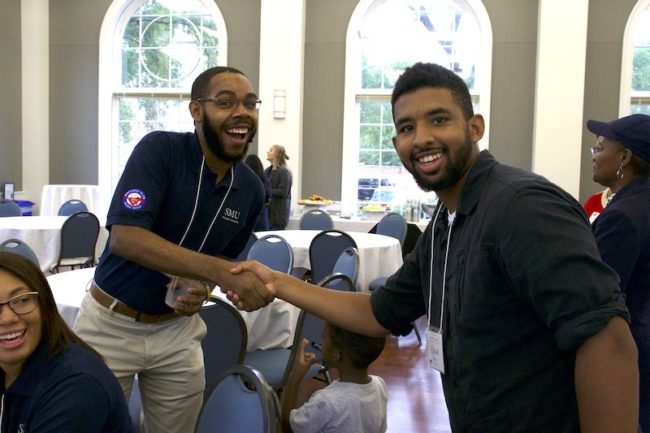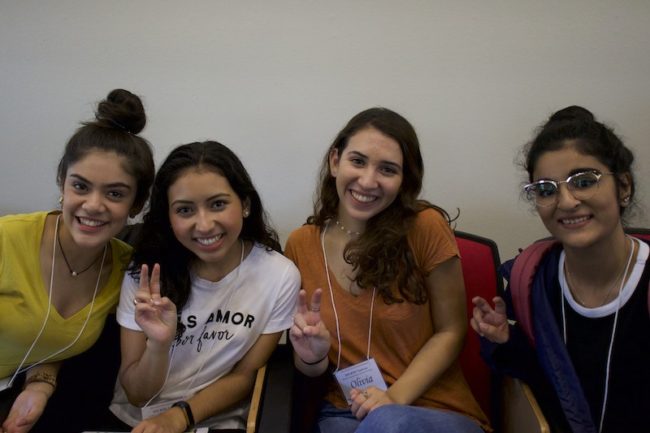Upperclassmen will never forget the first few moments with their peers at Camp Corral. The excitement, or dread, they felt coming into their first year was embedded into their memories. They remember everything and bond over their experiences.
First-years are now going through their transitional period, and some have already had help along the way. CONNECT is a part of the RISE Institute created by the Office of Social Change and Intercultural Engagement (OSCIE) as a mentorship program for incoming students of color. It takes place four days before Corral.
“We pair first year students with a mentor based on their major, interest, or maybe where they are from,” said Erica Zamora, the Assistant Director for Social Change and Intercultural Engagement. “These are going to be things that help them through their transition.”
The transitional period between high school and college is a scary time because of the unfamiliarity.
“There’s a lot of anticipation just on what belonging is to the students and I don’t think that is unique to the CONNECT Program, it’s a lot of first year students,” Zamora said.
First-year Paloma Renteria agrees with this.
“I did feel intimidated by the SMU stereotype, because I wondered how I would do socially if I didn’t quite fit into that,” Renteria said. “You hear that the demographics are more skewed than they are at other campuses, so I wondered if I would find my people, my place, or whether or not I was cut out to be here.”
Corral is a way for freshman to break the ice and get to know each other. Some people look back on their Corral experiences fondly, but others prefer not to look back at all.
“I was excited. I heard mixed reviews on Corral, but overall after experiencing it, I thought it was a really great bonding experience,” first year Emily Stein said. “I know that I wouldn’t have done that much socializing if we just stayed on campus. So placing us in that environment really allowed us to get to know our class.”

The CONNECT program gave participating students the opportunity to explore campus, meet upperclassmen and other first years with similar experiences. Stein, like others in the program, valued the CONNECT experience as she went into Corral and her first few weeks.
“CONNECT helped me find a good group of friends that I could talk with and hang out with,” Stein said. “It really made campus smaller for me, which is what I wanted.”
During the CONNECT program, students meet faculty members, attend workshops about transitioning as students and have a panel called ‘Real Talk’ where first years ask mentors questions about college life without administrators in the room. Renteria specifically remembers the workshop that Zamora led about remembering the values that are important to them. She said she remembered her own value as she began the year.
“It is really exciting but you are overwhelmed with people who want to pull you in a million different directions,” Renteria said. “There are so many things happening, but in the workshop with Ms. Zamora, we had the chance to get introspective and reflect on what is the most important to me at the end of the day and how can I stay connected to that.”
Senior David Davila has been a mentor for the last three years and has enjoyed his experiences with CONNECT. He understands the importance of students having a smooth transition.
“It was really gratifying because I didn’t have the best transition, so I appreciated that I could make it easier for other people,” Davila said. “There are very few minority students here on campus, so the less they enjoy their experience the less of them there are going to be.”
Many of the mentors are students who have either been mentored in CONNECT or have heard about it and recognize its importance. Mentors, such as Davila, want to do anything they can to facilitate that smooth transition.
“I can’t make their first year perfect,” Davila said. “I wish I could, but I can’t. But whatever little sprinkle I can add to their first-year sundae is perfect.”









